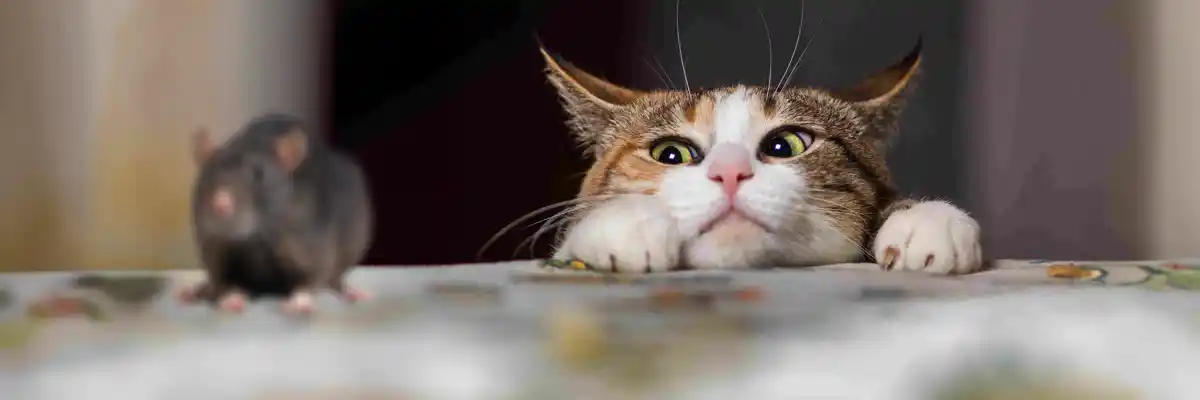The Cat and Mouse Game: When Jerry Trumps Tom

In the never-ending war against mice and rats, cats are often hailed as natural-born killers, supposedly keeping rodent populations in check with their keen instincts and killer prowess. But recent studies and real-life experiences show that relying on your cat alone for rodent control isn’t as effective as you think.
Some Cats May Be Reluctant to Hunt Rats
Contrary to popular belief, not all cats are enthusiastic hunters, especially when it comes to larger prey like rats. Cats face risks every time they hunt, from potential injuries inflicted by their prey to exposure to diseases carried by rodents. Consequently, many cats may be reluctant to engage with rats, preferring smaller and less formidable targets.
Also, every cat possesses a unique personality, and not all of them incline toward hunting rodents. Some may simply ignore mice or rats, leaving your home vulnerable to infestations despite having a feline companion.
Rats Develop Tactics to Evade Cats
On the other hand, rats can adapt to cats, changing their behavior to avoid predation. You may see fewer rats, but in reality, they are simply changing their behavior in response to your cat’s presence. So, while cats may drive rats away from certain areas, they may not eliminate the entire population.
The Hazards of Hunting Mice
Cat owners should be aware that hunting mice exposes their pets to various risks. This includes diseases and parasites transmitted by rodents. Eating mice or rats treated with rodenticides can also easily poison cats, resulting in a slow and painful death.
How Cats Can Actually Amplify Rodent Issues
Relying on cats for pest control may not address the root cause of infestations and could lead to ongoing problems.
In some cases, outdoor cats may inadvertently exacerbate rodent problems by bringing live prey into the house. Since most cats hunt at night, your potential issue is likely to go unnoticed at first.
Mice Reproduce Rapidly
Even if your cat manages to catch a few mice, the rodents left unchecked can quickly multiply due to their fast reproductive rates. This highlights the importance of addressing infestations promptly and effectively.
Cats Have a 1.33% Success Rate
While cats can indeed deter rats through their presence, their effectiveness as pest controllers may be limited. Research suggests that cats may not actively hunt rats as frequently as believed, and their impact on rodent populations may be less significant than assumed.
In a recent study, researchers at Fordham University discovered that local cats attacked only three of the waste management facility’s 150 rats over the course of 79 days. Of those three attacks, only two were successful kills.
Professional Pest Control to the Rescue
Cats can help with rodent control, but they shouldn’t be used as a one-size-fits-all solution. Homeowners should seek a multi-faceted approach that includes hiring a pest control service, sealing off entry points, and taking preventative measures.
In the end, homeowners can make informed decisions to effectively manage pest problems and create a safer, healthier living environment for both humans and pets alike.
Termite Lawn and Pest provides comprehensive control services to tackle your rodent problems head-on. Contact us today for a free consultation!

